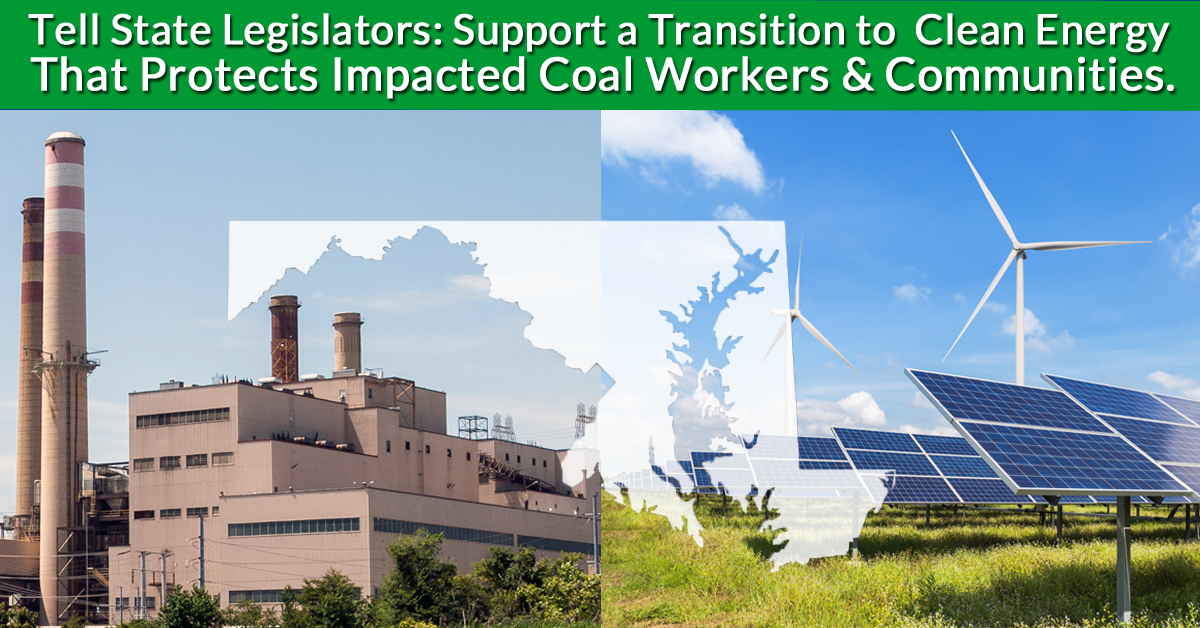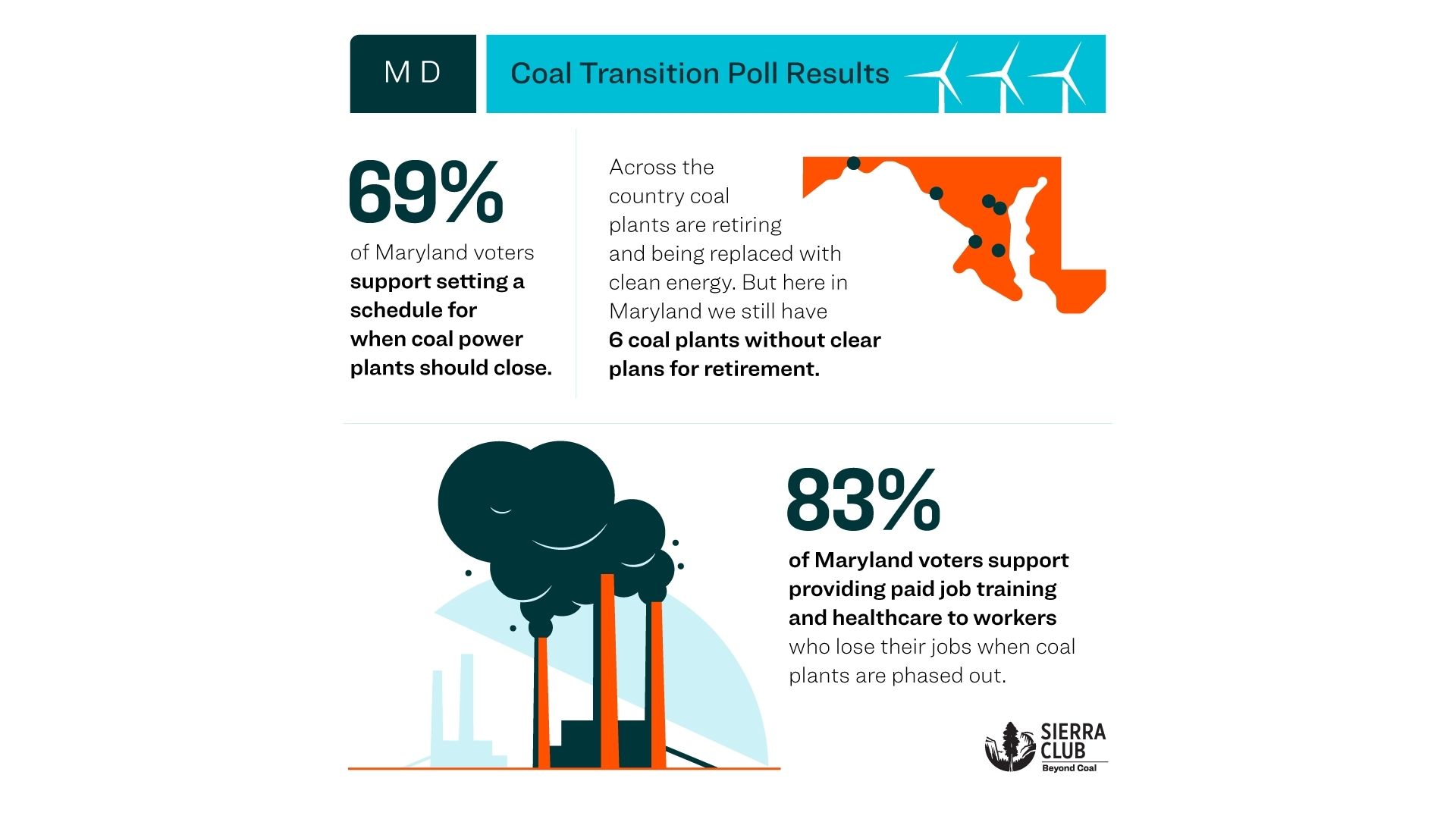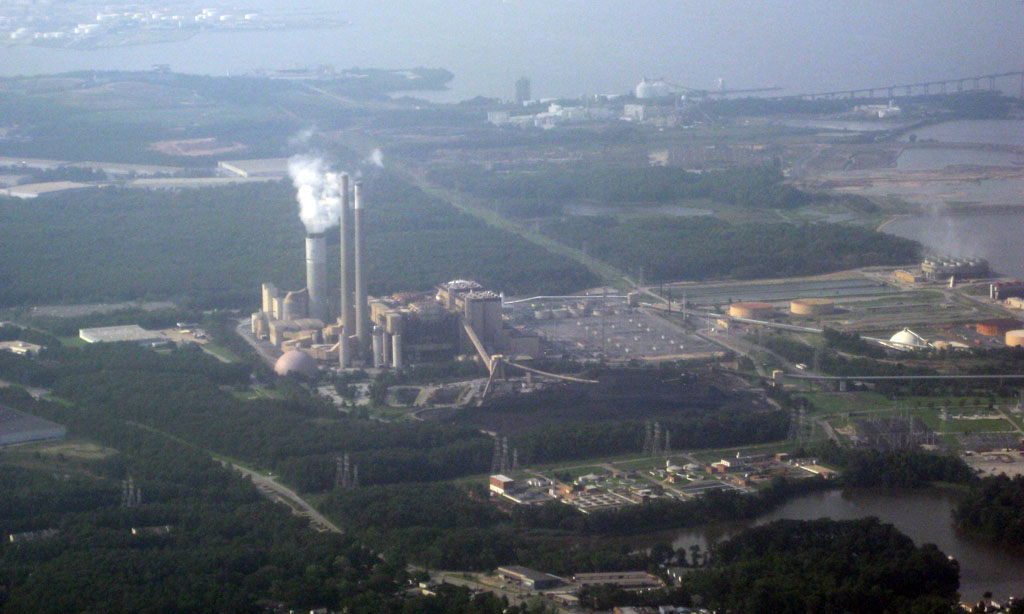
I’m not going to beat around the bush -- Maryland has failed to create a transition plan to move the state responsibly off coal while providing support for impacted communities and workers -- so we need your help today! There’s a lot going on in the world right now but as Maryland officials are planning their priorities for 2021, we need commitments on climate action that involve moving beyond coal.
THE ASK
I’m asking you to contact your state Senators and Delegates to tell them that they need to act in 2021 to commit to moving Maryland beyond coal and supporting our workers and communities in the transition away from fossil fuels.
Over a decade ago, when the Maryland General Assembly passed the first Greenhouse Gas Reduction Act, the state was seen as a leader on climate action. Then, Maryland made a significant commitment to clean energy and earned national headlines when it became the first state with gas reserves to ban fracking.
But when it comes to coal, the most harmful fossil fuel energy source we have in our Maryland power sector, the General Assembly and Governor have dropped the ball.
It’s time to for YOU to ask whether or not the Governor and General Assembly are ready to tackle some of the harder climate-action questions – these include how do we manage the elimination of fossil fuels like coal in the state while ensuring good, union jobs in both our growing clean energy economy and in upgrading our existing energy infrastructure for the 21st century.
THE DATA IS IN
In 2019, Maryland’s coal-fired power plants produced less than 10% of the electricity we consumed but dumped out of their smokestacks 54% of the climate-warming carbon dioxide generated by the state’s power sector, 79% of the smog-forming nitrogen oxides, and 96% of the dangerous sulfur dioxide.
The downward spiral of coal is happening. In Maryland, for example, after the 2020 session ended, it became clear that half of the state’s coal boilers are on their way out (they retired or it was announced that retirement will occur in the first six months of 2021). In one case, workers got just 90 days notice they would be out of a job!!!
But that still leaves four coal-fired power plants in Maryland without plans to stop their pollution of our climate, air, and waters. And we need certainty about retiring those plants as well – certain end-dates to ensure we are responding to the climate and public health crises, and certain structures in place to support workers facing lay-offs and communities facing a loss in local tax revenue.
We’re frustrated that Maryland has failed to establish a transition plan, set an end date for coal, or to establish workforce and community support structures for communities affected by retiring the coal plants-- workers and communities who now face plant closures deserve better. It’s been known for decades that we need to stop burning coal to address climate disruption and that getting off coal will mean cleaner air and cleaner water. Yet in recent years the Maryland Commission on Climate Change has repeatedly dismissed the mere notion of recommending the state establish a coal and community transition plan. What’s the point of a Commission on Climate Change if it won’t say Maryland should stop burning coal?
The General Assembly needs to lead now! The 2019 Clean Energy Jobs Act, which passed with bipartisan support, explicitly states that Maryland must “eliminate carbon-fueled generation from the state’s electric grid.” A few months later, polling showed that Marylanders overwhelmingly support the enactment of a coal retirement plan.

Nonetheless, in its 2020 session, the General Assembly failed to advance a bill to set the end date for coal burning in Maryland and establish a new community and workforce transition plan.
THE BIGGER PICTURE
Several states are far ahead of Maryland, and we can chart their progress.
In September, Hawaii passed a law to end coal-burning for power. Washington State has passed multiple bills to transition off its largest coal plant and then move completely beyond coal. New Mexico passed coal transition legislation for workers and communities in 2019. Colorado is developing a coal transition plan thanks to previous legislation. But it’s not just Western States. New York set end dates for its remaining coal plants and has transition programs. This year our neighbors to the south in Virginia passed a law with end dates for the majority of its coal plants. And just last week we saw the single largest coal phase-out announcement in the last decade when coal giant Vistra Energy announced the closure of six coal plants -- a move that will eliminate coal from the company’s portfolio in Illinois and Ohio.
The climate justice movement is about million-metric-ton reductions of climate pollution, but also so much more. It’s about transitioning away from fossil fuels to a thriving, clean energy economy that supports union plant workers and miners that have powered our economy for over a hundred years, and invests in the health and well-being of disproportionately low-income communities and communities of color that have borne the brunt of the pollution from fossil fuel corporations.
This is where you come in. General Assembly leaders are busy drafting priorities for the 2021 session. These must include strong actions to mitigate climate change, and these strong actions must include the end date for coal in Maryland and a plan to bring together union and community leaders, clean energy businesses, and local officials to chart the transition off coal.
Be good to each other,
David
David Smedick is Sierra Club's Senior Campaign Representative for the Beyond Coal Campaign for the Mid Atlantic Region.
